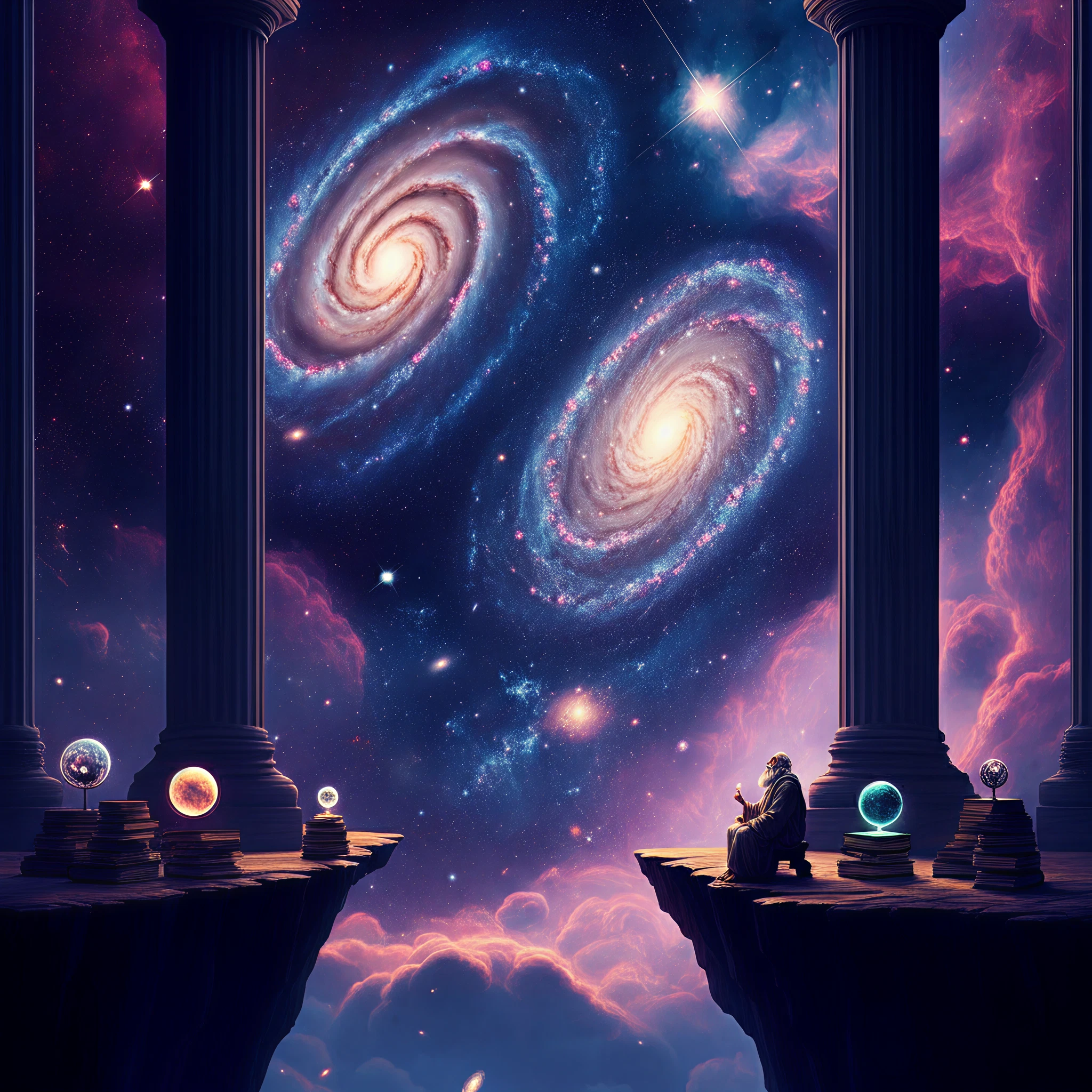Curiosity has driven human progress for centuries. From unraveling the mysteries of gravitational forces to decoding our genetic blueprint, we’ve accomplished mind-boggling feats with our relentless quest for answers. Yet, some questions continue to elude definitive explanation, standing as fascinating puzzles for philosophers, scientists, and thinkers alike.
These “unanswerable questions” challenge the boundaries of human knowledge and often leave us yearning for more. Today, we’re taking a deep-dive into these profound mysteries, spanning philosophy, science, logic, and the enigmas of daily life.
Philosophical Riddles
At the heart of philosophy are questions that probe the very fabric of existence and meaning. Here are three iconic riddles that have stood the test of time, captivating thinkers for centuries.
1. The Ship of Theseus
Imagine a ship with every plank replaced over time. Is it still the same ship, or does it become something new? Or, if those original planks are reassembled into another ship, which of the two is genuinely the Ship of Theseus?
This thought experiment raises deeper questions about identity and change. It asks us to consider whether an object’s essence lies in its materials, its structure, or the perception of continuity.
2. The Problem of Evil
If an all-powerful, all-good deity exists, why does evil endure? Wars, suffering, and disasters challenge the compatibility of a benevolent God with the existence of such pain. Known as theodicy, this question has perplexed religious philosophers throughout history, as they wrestle with reconciling divine justice with human experience.
3. The Hard Problem of Consciousness
How does the physical brain give rise to subjective experiences, thoughts, and emotions? Known as the “hard problem,” this riddle of consciousness is at the forefront of neuroscience and philosophy. While we understand the mechanics of brain activity, the leap from neural processes to the richness of individual experience remains a mystery.
Scientific Enigmas
Science has illuminated much of our universe’s workings, but some questions remain tantalizingly out of reach, challenging the known limits of physics, cosmology, and biology.
1. What Is Dark Matter and Dark Energy?
Scientists estimate that about 95% of the universe is made up of dark matter and dark energy, yet we have no clue what they actually are. Dark matter doesn’t emit or absorb light, making it invisible to our instruments. Similarly, dark energy, thought to drive the universe’s accelerated expansion, remains enigmatic. What are these mysterious forces, and how do they shape the cosmos?
2. What Happened Before the Big Bang?
The Big Bang theory explains how the universe began to expand from an infinitesimally small, dense state. But what was there before the Big Bang? Was there even a “before” if time itself was created during this event? These profound questions challenge our understanding of time, causality, and existence.
3. Are We Alone in the Universe?
The Fermi Paradox asks a straightforward question with no clear answer: If intelligent extraterrestrial civilizations exist, why haven’t we encountered them? The Milky Way should be teeming with advanced life forms, yet we see no evidence of them. Are we truly alone, or are we just not looking in the right way?
Paradoxes and Logical Loops
Paradoxes play tricks on our logic and reasoning, highlighting the limitations of our understanding.
1. The Liar Paradox
“This statement is false.” If the statement is true, then it must be false—but if it’s false, then it must be true. This self-referential paradox exposes the limitations of binary logic and challenges our attempts to classify statements as purely true or false.
2. The Grandfather Paradox
A classic in time-travel thought experiments, the Grandfather Paradox asks what would happen if you traveled back in time and prevented your grandfather from meeting your grandmother. This would mean you were never born and couldn’t have traveled back in time in the first place. Such paradoxes reveal the complexities of causality and the potential consequences of altering past events.
Everyday Mysteries
Sometimes, the most intriguing questions are rooted in our daily lives, defying straightforward explanation.
1. Why Do We Dream?
While sleep and REM cycles are well-studied, the fundamental purpose of dreams remains elusive. Are dreams a way of processing emotions, solving problems, or purely random neural activity? No single theory can fully explain why we dream or the meaning behind our bizarre nighttime narratives.
2. What Is Déjà Vu?
That eerie feeling that you’ve experienced something before despite knowing you haven’t is called déjà vu. While some theories suggest it’s a glitch in memory or perception, its exact cause remains unclear, continuing to puzzle neurologists and psychologists.
3. Why Do Some People Have Photographic Memories?
Eidetic, or photographic, memory allows some individuals to recall images, sounds, or experiences with astonishing precision. Why do some people have this extraordinary ability, while others rely on approximate recollection? The science behind eidetic memory is still not fully understood.
The Limits of Human Knowledge
At the core of unsolvable questions lies the acknowledgment of our intellectual boundaries. Gödel’s incompleteness theorems, for instance, suggest that in any system of logic, there will always be statements that cannot be proven or disproven within that system. Some questions may forever remain unanswered—not because we lack the intelligence, but because they transcend the frameworks of our understanding.
Why These Questions Matter
While it might seem frustrating to confront questions that have no answers, they serve an important purpose. They inspire intellectual curiosity, fuel creativity, and pave the way for new discoveries. Some of today’s scientific advancements, from quantum mechanics to AI, stemmed from pondering these age-old riddles.
What’s Next?
The allure of these unanswered questions is their power to expand our thinking and challenge our perspectives. They connect science, philosophy, and logic, reminding us that the pursuit of knowledge is as much about the questions as it is about the answers.
What questions keep you awake at night? Share your thoughts with us in the comments. And if you’re ready to challenge the boundaries of your imagination, explore our latest Q&A series on life’s greatest mysteries.
Suggested Images for the Article
- Philosophical Riddles: An abstract painting of a ship being dismantled and rebuilt simultaneously.
- Dark Matter and Dark Energy: A dark swirling cosmic image with faint glowing masses to represent unseen forces.
- Déjà Vu: A surreal, dreamlike duplication of a figure walking down a street.
- Time Paradoxes: A clock bending and twisting through a wormhole-like tunnel.
- Limits of Human Knowledge: A silhouette of a human figure looking out into a vast, misty void symbolizing the unknown.








